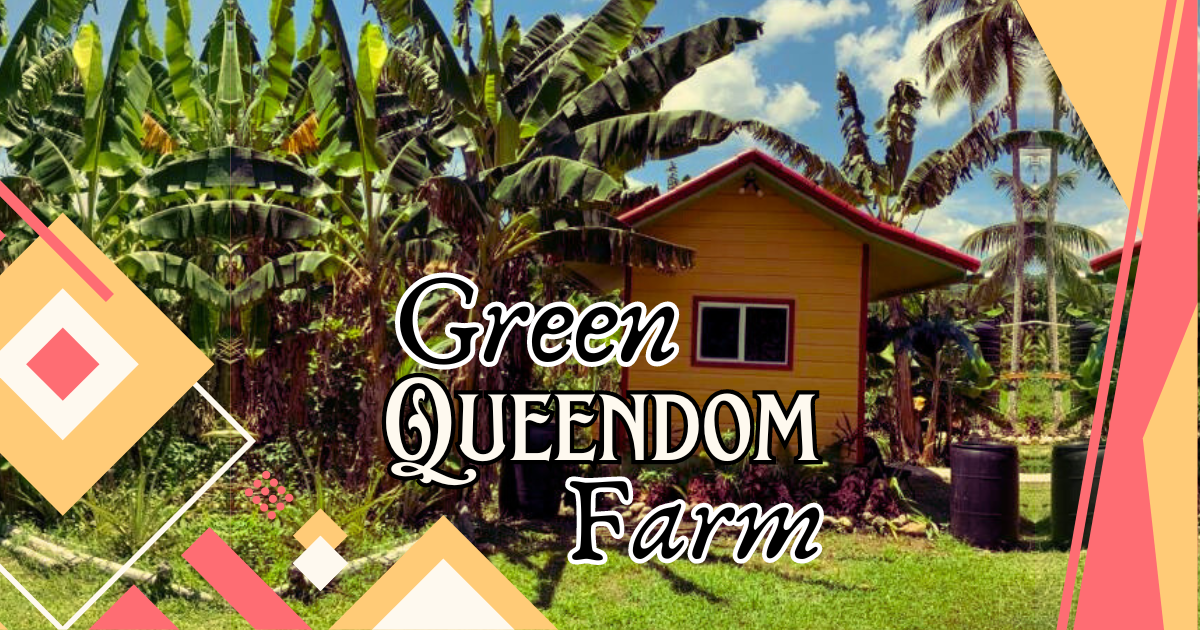Introduction: 7 Amazing Facts About Green Queendom Farm and Its Sustainable Mission
In an era where environmental consciousness and healthy living are more important than ever, Green Queendom Farm stands out as a beacon of sustainable farming and organic produce. Nestled in a lush environment, this farm is committed to creating a positive environmental impact while providing nutritious, fresh food to the community. But what makes Green Queendom Farm truly unique?
In this blog post, we’ll explore 7 amazing facts about Green Queendom Farm, including its dedication to sustainable agriculture, its farm-to-table philosophy, and the numerous ways it positively impacts both the environment and the local community. By the end of this guide, you’ll understand why Green Queendom Farm is a leader in organic and regenerative farming.
What is Green Queendom Farm? A Look at Its History and Purpose
At its core, Green Queendom Farm is more than just a farm—it’s a movement dedicated to promoting sustainable agriculture, organic produce, and community education. Established with the vision of creating a harmonious relationship between nature and food production, the farm focuses on growing crops using methods that enrich the soil, conserve water, and minimize the use of chemicals.
The Founding Vision
The founders of Green Queendom Farm were driven by a passion for organic farming and a desire to provide healthier, more sustainable food options to local communities. The farm was built on principles of respect for the environment and the importance of natural farming methods. From the start, their mission has been clear: to offer high-quality, organic produce while promoting the idea that farming can be both sustainable and profitable.
Organic Certification
From day one, Green Queendom Farm pursued organic certification, ensuring that every step of their farming process adheres to the strict guidelines of organic agriculture. This commitment to organic farming means that no synthetic pesticides, herbicides, or GMOs are used, making their produce cleaner, safer, and more environmentally friendly.
Sustainable Agriculture at Green Queendom Farm: Leading the Way
One of the most remarkable aspects of Green Queendom Farm is its commitment to sustainable agriculture. But what does this really mean, and how does it set the farm apart?
1. Organic Farming Practices
At Green Queendom Farm, the focus is on growing food that nourishes both people and the planet. By using organic farming methods, the farm ensures that its crops are free from harmful chemicals, which not only benefits consumers but also protects the surrounding ecosystem.
- Crop Rotation: By rotating crops regularly, the farm maintains soil fertility and reduces the need for chemical fertilizers.
- Natural Pest Control: Instead of relying on pesticides, the farm uses natural methods such as introducing beneficial insects to control pests.
2. Water Conservation
In addition to organic farming, Green Queendom Farm places a high priority on water conservation. The farm uses advanced drip irrigation systems to minimize water waste, ensuring that every drop is used efficiently. This method also helps prevent soil erosion and promotes healthier plant growth.
3. Soil Regeneration
Healthy soil is at the heart of Green Queendom’s mission. By using compost and natural fertilizers, the farm enhances soil quality, ensuring that future crops are just as vibrant and nutritious. These regenerative farming practices help capture carbon in the soil, reducing the farm’s carbon footprint and contributing to long-term environmental sustainability.
Farm-to-Table: The Fresh Produce of Green Queendom
A central pillar of Green Queendom Farm is its commitment to the farm-to-table movement. This philosophy revolves around growing and delivering food directly from the farm to the consumer, ensuring maximum freshness, flavor, and nutritional value.
1. Direct Sales to the Community
Green Queendom Farm works closely with local markets, restaurants, and individual customers to provide fresh produce harvested daily. This farm-to-table approach eliminates the middleman, ensuring that customers receive the freshest possible ingredients. Not only does this benefit the consumer, but it also reduces the environmental impact of long transportation distances.
2. Seasonal Variety
By focusing on seasonal crops, Green Queendom is able to offer a wide range of produce throughout the year. Whether it’s juicy tomatoes in the summer or hearty root vegetables in the winter, each season brings new and exciting flavors to the community. This seasonal approach also allows the farm to work in harmony with nature, growing crops that thrive naturally in the local environment.
3. Local Partnerships
In addition to individual customers, Green Queendom Farm partners with local restaurants and cafes, providing them with high-quality, organic ingredients for their menus. This helps promote healthier eating habits within the community and raises awareness about the importance of supporting local agriculture.
The Benefits of Green Queendom Farm’s Organic Produce
Choosing organic produce from Green Queendom Farm isn’t just about supporting local agriculture—it’s about making a positive impact on your health and the environment. But what exactly are the benefits of choosing organic?
1. Free from Harmful Chemicals
One of the key benefits of organic produce is that it’s grown without synthetic pesticides, herbicides, or chemical fertilizers. This means that the fruits and vegetables you’re consuming are free from residues that could be harmful to your health. Organic farming also protects farm workers and the surrounding ecosystem from exposure to these chemicals.
2. Richer in Nutrients
Studies have shown that organic produce often contains higher levels of essential nutrients, including vitamins, minerals, and antioxidants. This is largely due to the way organic crops are grown, with a focus on soil health and natural growth cycles, leading to more nutrient-dense food.
3. Better for the Environment
By choosing organic produce from Green Queendom Farm, you’re also supporting farming methods that reduce the environmental impact of agriculture. Organic farms like Green Queendom are more likely to engage in practices that protect the soil, conserve water, and reduce pollution, leading to a healthier planet.
Community Engagement and Education at Green Queendom
Green Queendom Farm doesn’t just grow food—it also grows knowledge. The farm is deeply involved in the local community, offering educational programs and workshops designed to teach people about sustainable agriculture, organic farming, and healthy eating.
1. Farm Tours and Workshops
Green Queendom Farm offers regular farm tours and workshops for schools, families, and local organizations. These tours provide an inside look at how the farm operates and give participants hands-on experience with organic farming techniques. By engaging with the community, the farm is able to spread awareness about the importance of sustainable agriculture and inspire the next generation of farmers and environmental stewards.
2. Community-Supported Agriculture (CSA) Program
Through its CSA program, Green Queendom Farm offers local residents the opportunity to receive fresh, seasonal produce delivered directly from the farm. CSA members pay upfront for a share of the farm’s harvest, receiving regular boxes of vegetables, fruits, and other products. This program fosters a closer connection between the farm and its customers, while also providing a steady source of income that supports the farm’s mission.
3. Healthy Eating Initiatives
The farm’s community outreach efforts extend beyond farming education. Green Queendom Farm is actively involved in promoting healthy eating through partnerships with local schools, food banks, and community organizations. These initiatives help ensure that everyone in the community has access to fresh, nutritious food, regardless of their economic situation.
How Green Queendom Farm Impacts the Environment Positively
At Green Queendom Farm, the commitment to the environment is woven into every aspect of their operations. By practicing regenerative farming and minimizing the farm’s ecological footprint, Green Queendom is contributing to a healthier planet while producing high-quality food.
1. Reducing Carbon Emissions
One of the biggest environmental challenges today is the amount of carbon dioxide released into the atmosphere through conventional farming practices. Green Queendom Farm tackles this issue through carbon sequestration, which captures carbon in the soil, helping to mitigate the effects of climate change.
2. Supporting Biodiversity
Instead of monocropping, where a single type of crop is grown year after year, Green Queendom Farm embraces biodiversity. By growing a variety of crops and maintaining natural habitats on the farm, they support local wildlife, improve soil health, and create a more resilient agricultural system.
3. Minimal Waste
From composting organic matter to recycling water, Green Queendom Farm works hard to reduce waste. By using every resource efficiently, the farm is able to minimize its environmental impact while increasing productivity.
Conclusion: The Future of Green Queendom Farm and Sustainable Agriculture
As we look to the future, Green Queendom Farm is set to continue leading the way in sustainable agriculture and community-driven organic farming. Their dedication to environmentally responsible practices, high-quality organic produce, and education will ensure that they remain a key player in the local food movement for years to come.
By choosing to support Green Queendom Farm, you’re not only investing in your own health but also in the health of the planet. Whether you’re enjoying the farm’s fresh produce or participating in one of their educational programs, you’re joining a community that values sustainability, nutrition, and a brighter future for farming.
FAQs About Green Queendom Farm
- What makes Green Queendom Farm different from other farms?
- Green Queendom Farm focuses on sustainable, organic farming practices that protect the environment while producing nutritious, high-quality produce.
- How can I purchase products from Green Queendom Farm?
- You can buy directly from the farm through their farm-to-table program or through their CSA membership, which offers seasonal produce boxes.
- What types of crops does Green Queendom Farm grow?
- Green Queendom Farm grows a wide variety of seasonal vegetables, fruits, and herbs, all using organic farming methods.
- How does Green Queendom Farm contribute to the community?
- The farm offers educational workshops, farm tours, and healthy eating programs, helping to teach the community about sustainable farming and healthy living.
- Is the produce from Green Queendom Farm certified organic?
- Yes, Green Queendom Farm is committed to organic farming practices and is certified organic, meaning no synthetic pesticides or GMOs are used.
- What is a CSA program, and how does Green Queendom Farm’s program work?
- A CSA program allows community members to purchase a share of the farm’s harvest. In return, they receive regular boxes of fresh, seasonal produce directly from the farm.
- How does Green Queendom Farm help the environment?
- Through regenerative farming practices, carbon sequestration, and biodiversity support, Green Queendom Farm minimizes its environmental footprint while improving soil health and reducing emissions.
- What is the farm-to-table concept at Green Queendom?
- Farm-to-table at Green Queendom means that produce is harvested fresh and delivered directly to customers, ensuring the highest quality and lowest environmental impact.
- Can I visit Green Queendom Farm?
- Yes, the farm offers tours and workshops for those interested in learning more about organic farming and sustainability.
- What are the future plans for Green Queendom Farm?
- Green Queendom Farm aims to expand its sustainable farming practices and continue its role in educating the community about the importance of organic agriculture.




